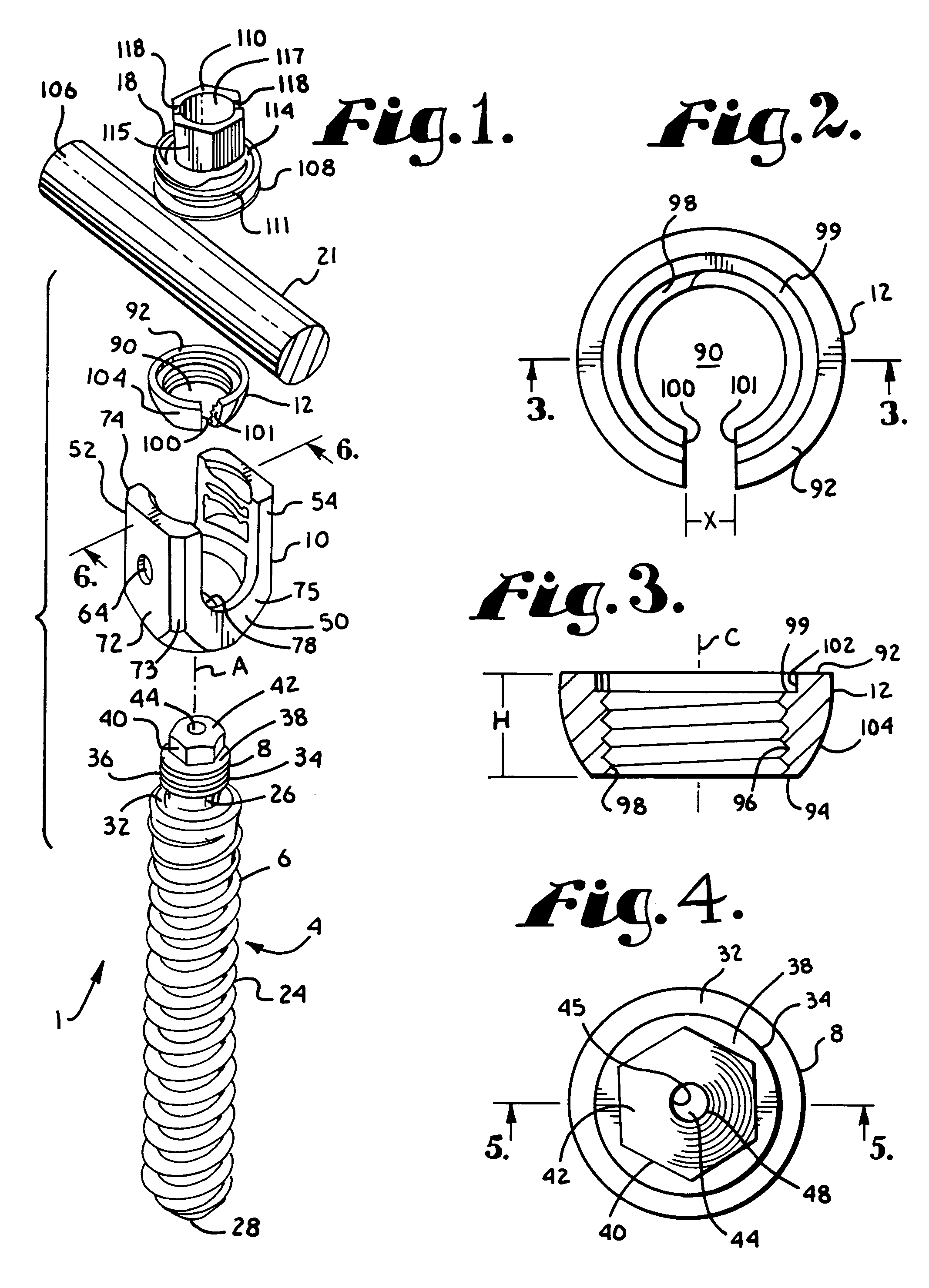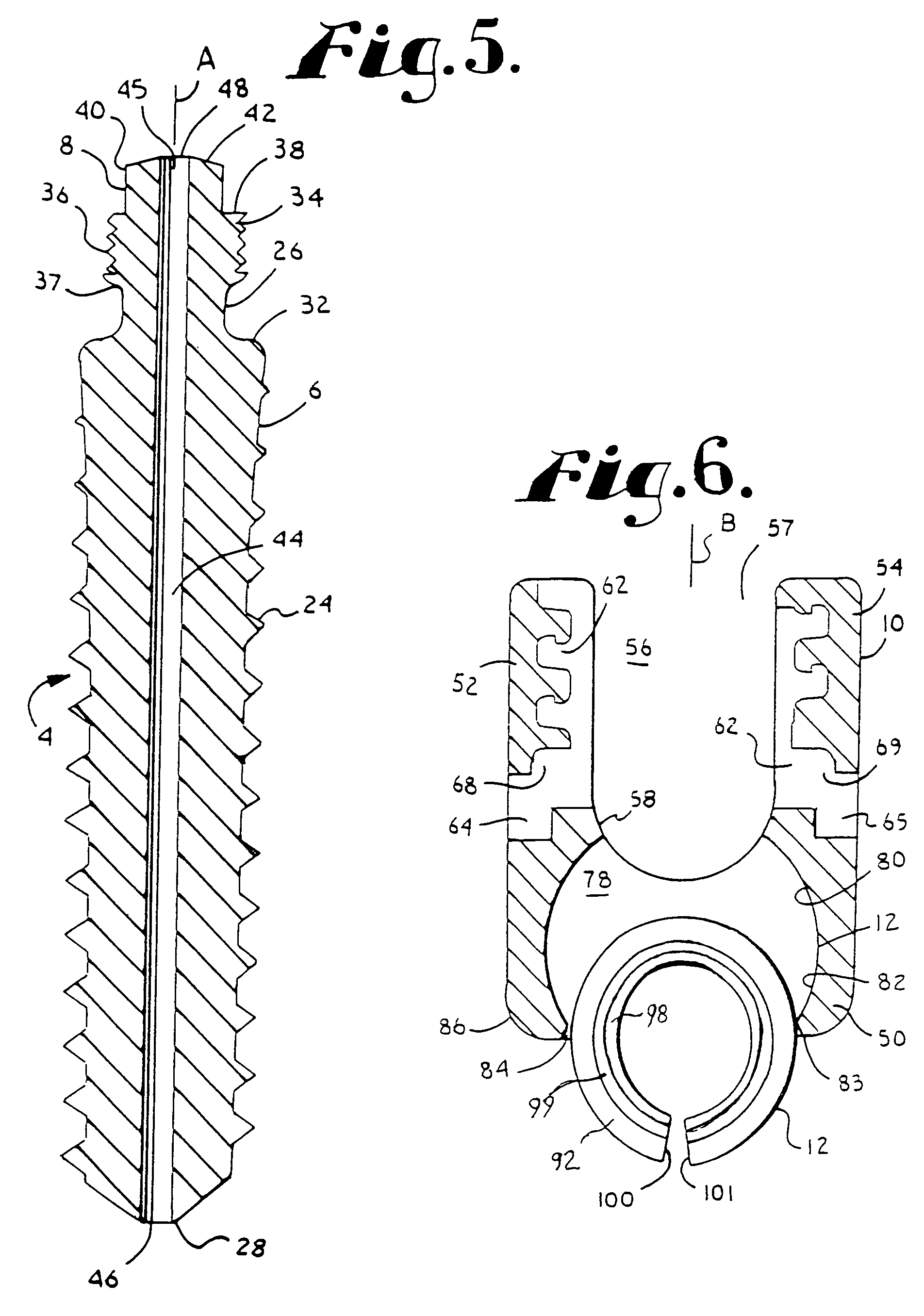Polyaxial bone screw with discontinuous helically wound capture connection
a technology of bone screws and helically wounds, applied in the field of polyaxial bone screws, can solve the problems of unsatisfactory, difficult or impossible to do, and difficult to rigidly fix to each other and into the desired position, and achieve the effect of preventing unintentional disassembly, convenient and convenient use, and adequate friction or gripping surfaces
- Summary
- Abstract
- Description
- Claims
- Application Information
AI Technical Summary
Benefits of technology
Problems solved by technology
Method used
Image
Examples
Embodiment Construction
[0034]As required, detailed embodiments of the present invention are disclosed herein; however, it is to be understood that the disclosed embodiments are merely exemplary of the invention, which may be embodied in various forms. Therefore, specific structural and functional details disclosed herein are not to be interpreted as limiting, but merely as a basis for the claims and as a representative basis for teaching one skilled in the art to variously employ the present invention in virtually any appropriately detailed structure.
[0035]In FIGS. 1-12 the reference number 1 generally represents a first embodiment of a polyaxial bone screw apparatus or assembly according to the present invention. The assembly 1 includes a shank 4 that further includes a body 6 integral with an upwardly extending capture structure 8; a head 10; and an open retainer structure or discontinuous ring or collar 12. The shank 4, head 10 and open retainer structure 12 preferably are assembled prior to implantati...
PUM
 Login to View More
Login to View More Abstract
Description
Claims
Application Information
 Login to View More
Login to View More - R&D
- Intellectual Property
- Life Sciences
- Materials
- Tech Scout
- Unparalleled Data Quality
- Higher Quality Content
- 60% Fewer Hallucinations
Browse by: Latest US Patents, China's latest patents, Technical Efficacy Thesaurus, Application Domain, Technology Topic, Popular Technical Reports.
© 2025 PatSnap. All rights reserved.Legal|Privacy policy|Modern Slavery Act Transparency Statement|Sitemap|About US| Contact US: help@patsnap.com



